A new Gira station, located in the Jardim das Francesinhas, was inaugurated yesterday and is now available for all the academic community. This initiative reinforces our School's commitment to sustainability and the promotion of practices that contribute to a greener future.
With the new Gira station, ISEG students, faculty and non-faculty staff can enjoy a practical and sustainable means of transport. Users with the navigator pass can take advantage of the Gira circuit free of charge, thus participating in an ecological and efficient alternative form of travel within the city.
We invite everyone to explore this new transport option, which is aligned with our values and goals of creating a more sustainable environment. Cycling is a way of looking after the planet and ourselves. Let's make a difference together!
For further information on the Gira system and how to use it, visit the official website.
Next Monday, the 2nd September, at 16h00, ISEG-Lisbon School of Economics and Management, Universidade de Lisboa, will be showing 'Water is Love: Ripples of Regeneration ', a documentary about the power of regenerating water cycles.
This special film screening is an integral part of the activities of the Global Goals Awareness Week, promoted by ISEG's Masters in Management (MiM). The objective is to raise awareness of the critical issues of water sustainability and regeneration, as well as to inspire students to reflect on complex environmental challenges and to consider creating companies or other forms of economic organisation, such as cooperatives, associations, and foundations, all of which act in defence of sustainability.
The event will include a discussion with the participation of the participation of one of the film's directors, Isabel Rosa, which will be a unique moment for the participants.
The entire ISEG community and residents of the Estrela Parish Council are invited to take part in this important initiative.
This is yet another demonstration of ISEG's commitment to promoting environmental sustainability and encouraging the next generation of leaders to make a difference in the world.
The event will take place in Auditorium 5 (ISEG, New Quelhas).
Free admission, subject to prior registration on this LINK.
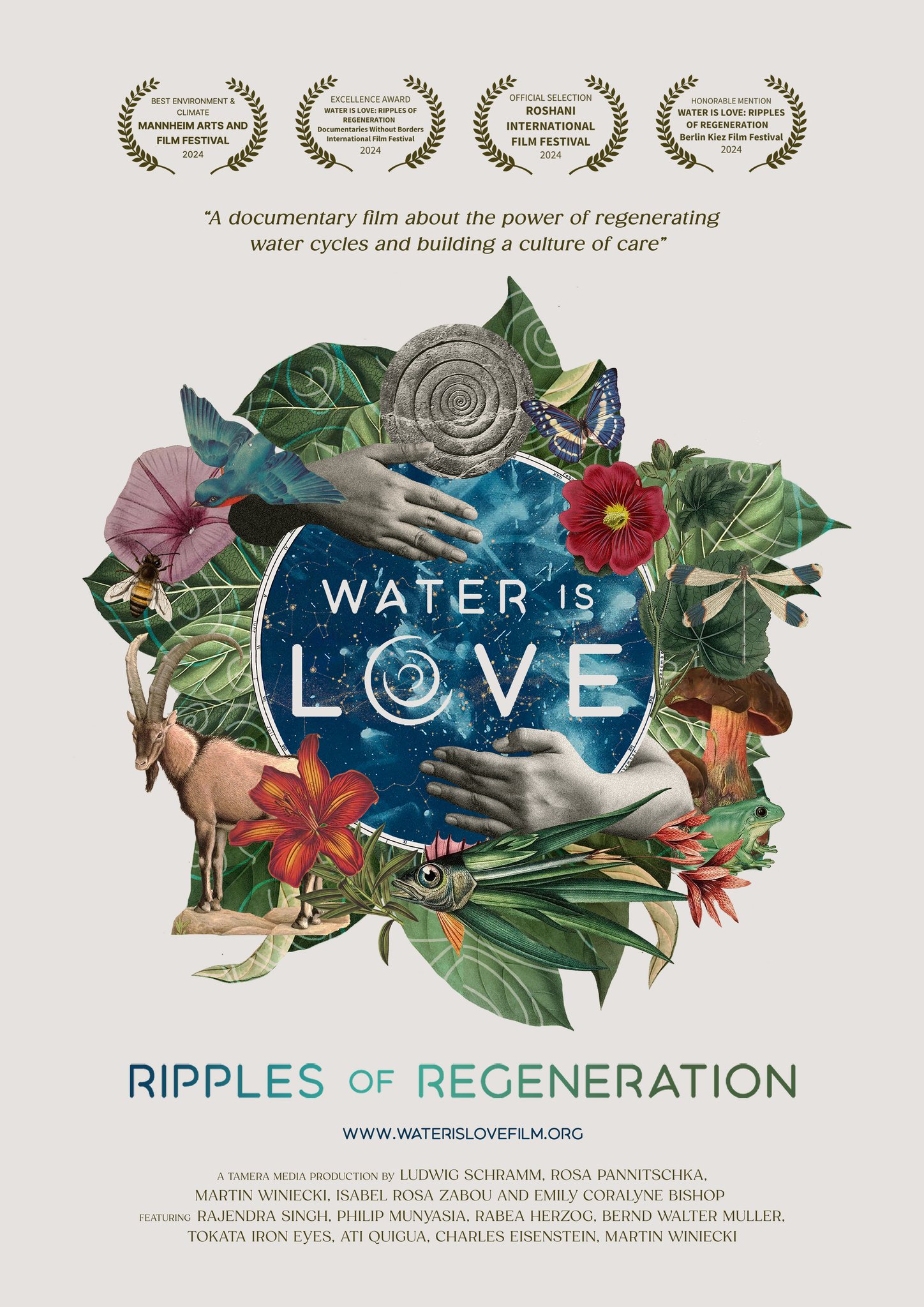
Synopsis:
"Water is Love" follows a group of young people struggling with the climate crisis, as we travel the world to share inspiring stories of regenerative ecosystem models to create rainwater retention in communities, villages and regions.
In this documentary, we look at traditional ecological knowledge, how water creates the climate and the importance of restoring complete water cycles.
Through inspiring stories of successful projects in India, Kenya and Portugal, we aim to spark conversations and actions that contribute to a regenerative and resilient world. As we face the growing and devastating impacts of climate disruption, this film points to an often overlooked need and possibility: community-driven decentralized water management as a fundamental key to surviving - and thriving - in this century.
In a world that is increasingly aware of the interconnection between corporate actions and environmental health and social well-being, the adoption of sustainable business practices has now become imperative.
Resulting from a joint initiative between NTT DATA, the Lisbon City Council, and ISEG, the objective of the ESG Prize is to distinguish the best academic Master's dissertations on the subject of ESG, which are written in Portuguese: "How to support companies implement sustainable ESG management that maximises their resilience and promotes a more sustainable city".
ISEG the ESG Prize is awarded to the best Master's dissertation.
Submit your application to globalsdg@iseg.ulisboa.pt until September 9, 2024.
See the rules and regulations HERE.
In this ISEG i2030 session, participants will be invited to use a free, interactive "gamification" tool that helps them understand the link between our lifestyles, the energy we use and the consequences for our climate.
It is aimed at anyone interested in exploring the possibility of a low-carbon world by 2050. The Game shows that it is possible to avoid dangerous climate change and ensure that people's living standards continue to improve if we act now!
Please bring your laptop to the session so you can take part in the Game!
Free admission.
Do you have clothes you don't use and don't know what to do with them? Do you want to earn some extra money? 💸
Get ready for the second-hand clothes fair at ISEG on April 9!
This event, organized by the Students' Association, will be an excellent opportunity to contribute to both your own well-being and that of the planet!
Sign up here.
The Instituto Superior de Economia e Gestão (ISEG) celebrated a significant environmental milestone with the successful planting of 360 trees in its urban mini-forest. The initiative, carried out in collaboration with the Estrela Parish Council on February 2, saw the active participation of the academic and local community.
The planting, which marks the start of this environmental project, involved the creation of a 300 m2 clearing, part of a total of 800 m2 planned for the project. This planting workshop reflects ISEG's commitment to integrating thought and practice to contribute to a more sustainable environment in the city of Lisbon.
The mini-forest thus becomes a living laboratory, offering learning opportunities and interaction with nature for members of the academic community and local residents. Part of the TERRARE research project, developed at SOCIUS/CSG by researcher Oriana Rainho Brás, the mini-forest represents the convergence of the ecological movement and the economy. The project also has the collaboration of biologist António Alexandre from 2Adapt-Serviços de Adaptação Climática and FCUL, and the partnership of ValorSul-Valorização e Tratamento de Resíduos Sólidos das Regiões de Lisboa e do Oeste, SA, which provides the organic compost to enrich the soil.
Since its conception, ISEG has embraced the idea of the mini-forest as an integral part of the School's ongoing efforts towards sustainability on campus. The socio-environmental benefits of urban mini-forests, such as temperature regulation, carbon sequestration, pollution reduction and stimulating biodiversity, are fundamental to promoting healthier urban environments.
By joining this network of mini-forests in the Lisbon metropolitan region, ISEG is reinforcing its commitment to sustainable practices and the promotion of environmental well-being. Professor João Duque, president of ISEG, involved in the project, expressed the importance of this initiative, saying: "The mini-forest is a tangible example of ISEG's commitment to social and environmental regeneration, an essential approach to building a more sustainable future. We could have hired a landscape architect and built a garden, but we preferred to host a mini-forest, a space that is more in keeping with our culture and values, freer, more autonomous and more enduring, where there is healthy competition between the species that inhabit it", he concludes.
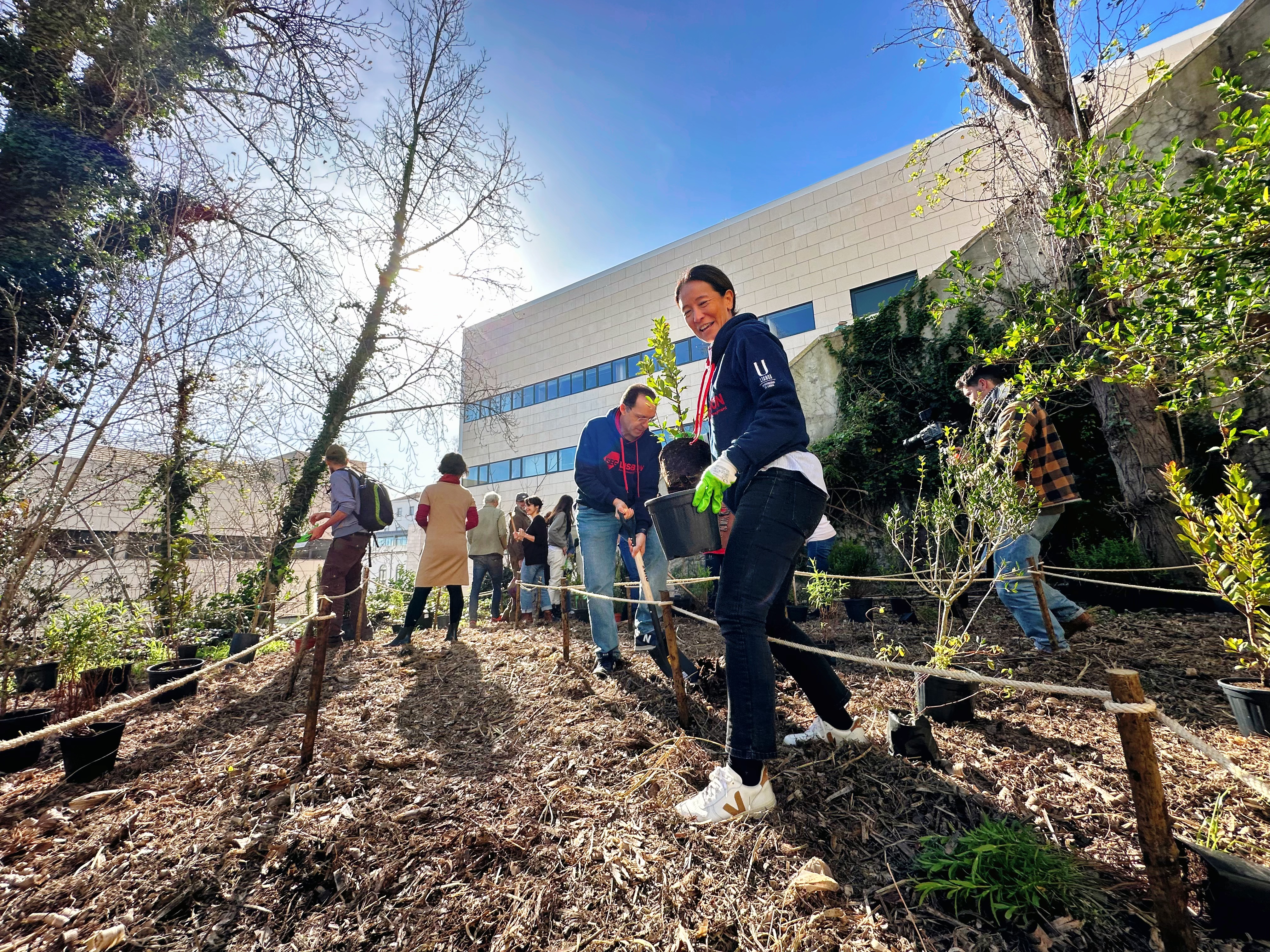
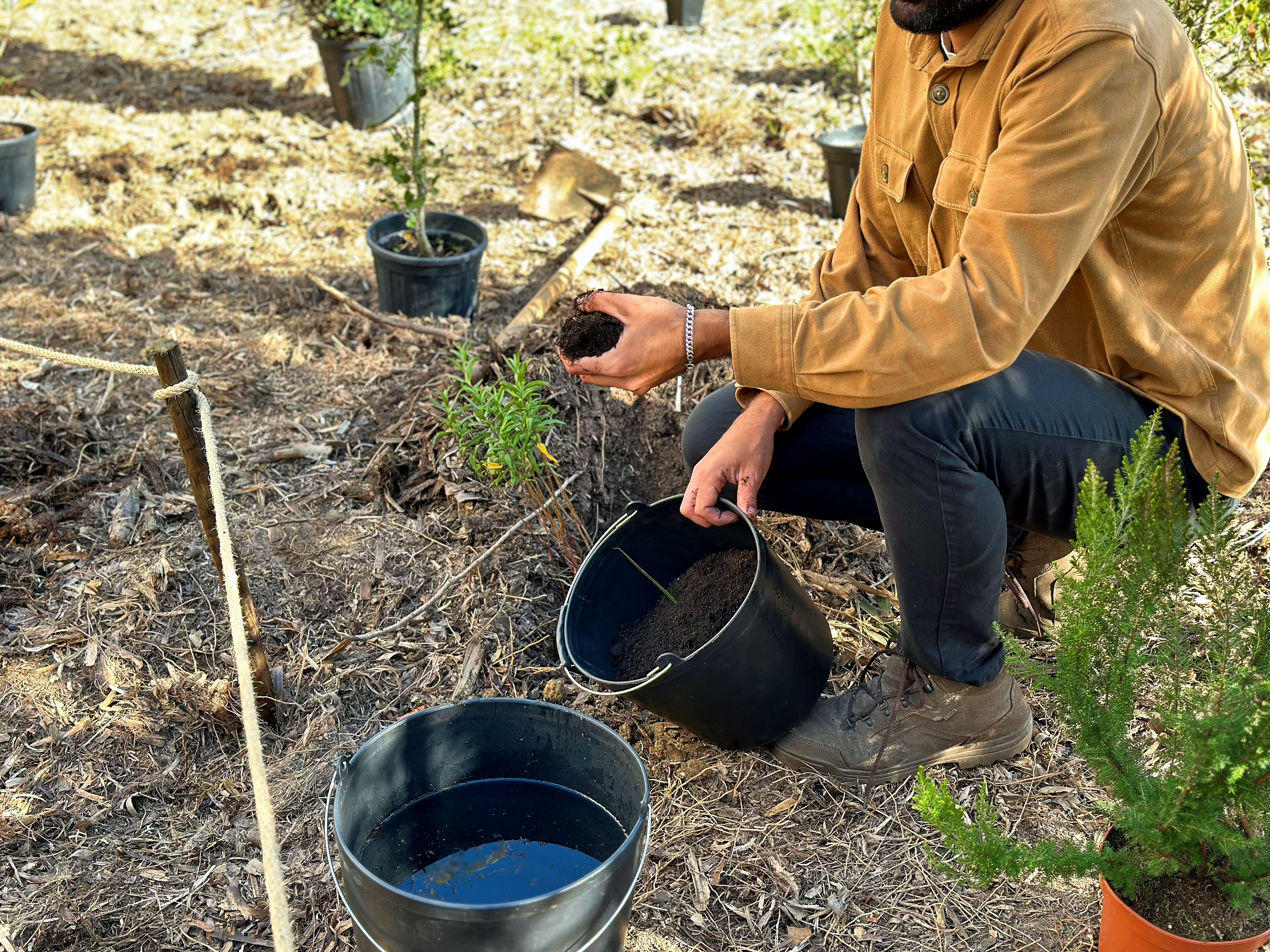
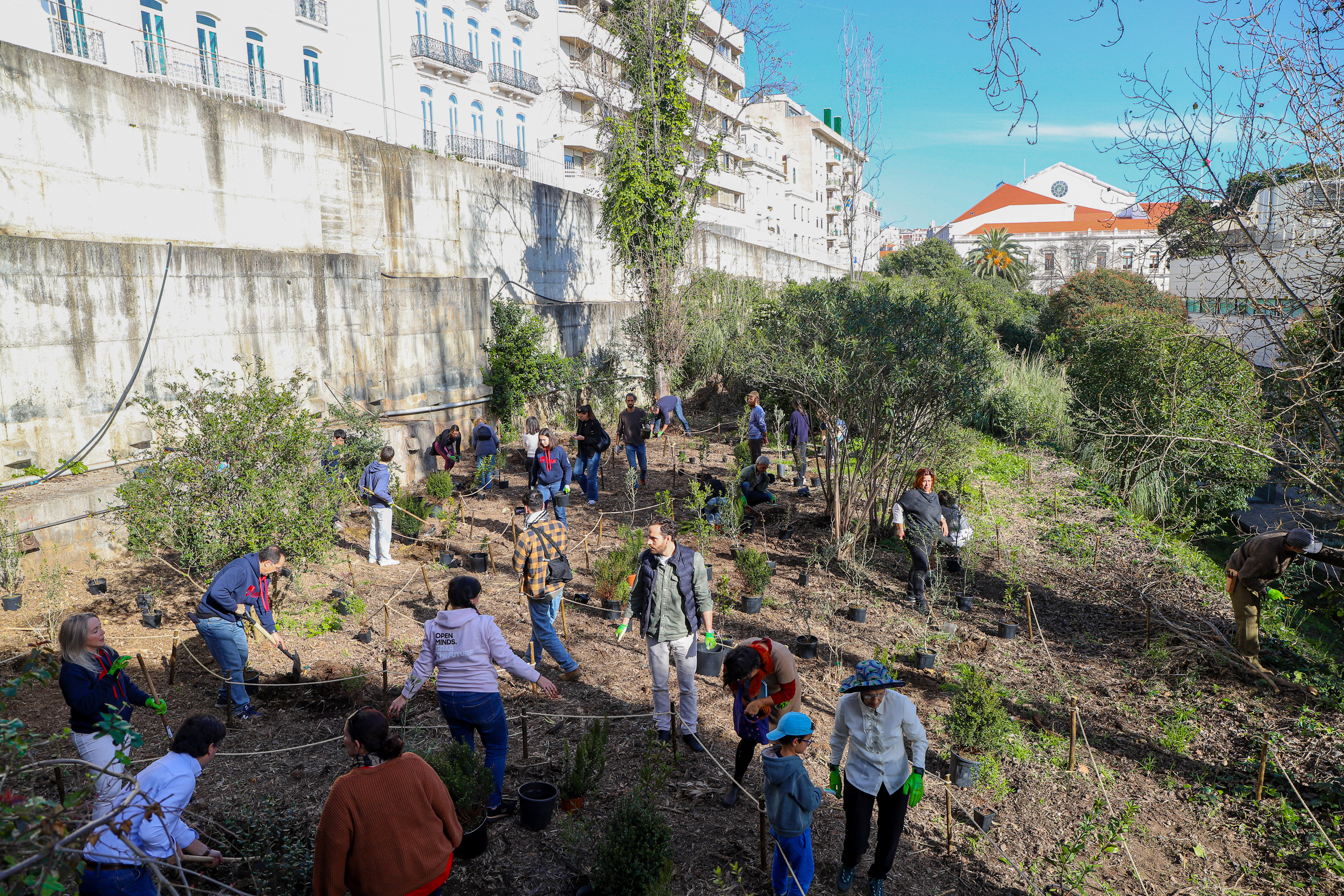
On February 2, we'll be planting hundreds of small plants and we need many hands to help!
To take part, simply register here at one of the activity times, from 10:30 to 12:30 or from 14:00 to 16:30.
Remember to bring a cup of tea and wear practical, comfortable clothes and shoes. If you have a native plant or seed at home that you'd like to put in the ground, you're welcome to do so. A tip: to check if it's a native plant, identify it on the website flora.on - If it appears there, it's a native plant and you can bring it in.
The project team TERRARE Action research for social and ecological regeneration invites the entire ISEG community to plant a mini-forest.
If you've never planted a tree, take this opportunity!
Further information:
orianarb@socius.iseg.ulisboa.pt
Tiago Gonçalves, a professor of Finance at ISEG, is the guest on the fourth episode of the second season of the "Uncomplicating Sustainable Finance" podcast, partnership between JE, ISEG's Centre for Sustainable Finance, and the British Embassy in Lisbon.
"The importance of education for Sustainable Finance" is the theme of this episode in which Professor Goncalves will explore the importance of education in sustainable finance, its impact on the cost of capital for companies, and its contribution to combating climate change.
Through conversations with relevant professionals in British and Portuguese sustainable finance, we aim to showcase the role of the financial sector in effectively combating climate change by supporting government and business decarbonisation efforts.
Listen to this and other episodes on Spotify.
ISEG-Lisbon School of Economics and Management, has achieved another significant feat in the area of sustainability by being selected as a PRME Champion for the 2024/2025 period.
This recognition, which is awarded by the United Nations Global Compact for the Principles for Responsible Management Education (PRME), acknowledges ISEG's commitment to integrating the values of sustainability and social responsibility into its academic activities.
“PRME Champions" are a group of business schools that demonstrate leadership and innovation in incorporating sustainability principles into their different areas of activity. By being part of this selective group, ISEG reaffirms its commitment to educating the next generation of socially responsible business leaders.
Winnie Picoto, vice-president for sustainability at ISEG, expressed her enthusiasm at the achievement: "Being a PRME Champion is a new challenge for ISEG and reinforces our responsibility as an agent of transformation and innovation which has a relevant and positive impact on society“.
We now know the Miyawaki method of urban mini-forests.
We took soil samples for analysis.
We weeded out invasive exotic plants.
We pruned the species that will remain in the space.
We collected all the rubbish.
We mapped out the space.
We created the design of the mini-forest.
We cleared the land.
Now it's time to mark out the design on the ground to guide the planting. The final design balances spaces for people and forested spaces and we can't wait to see the mini-forest take shape!
On January 19th at 2pm, we'll gather in the grounds next to the ISEG library to mark out the paths, clearings and spaces for planting. These steps are very important and precede planting.
Join us. We need many hands!
To take part, all you need to do is register here or contact researcher Oriana Rainho Brás at orianarb@socius.iseg.ulisboa.pt
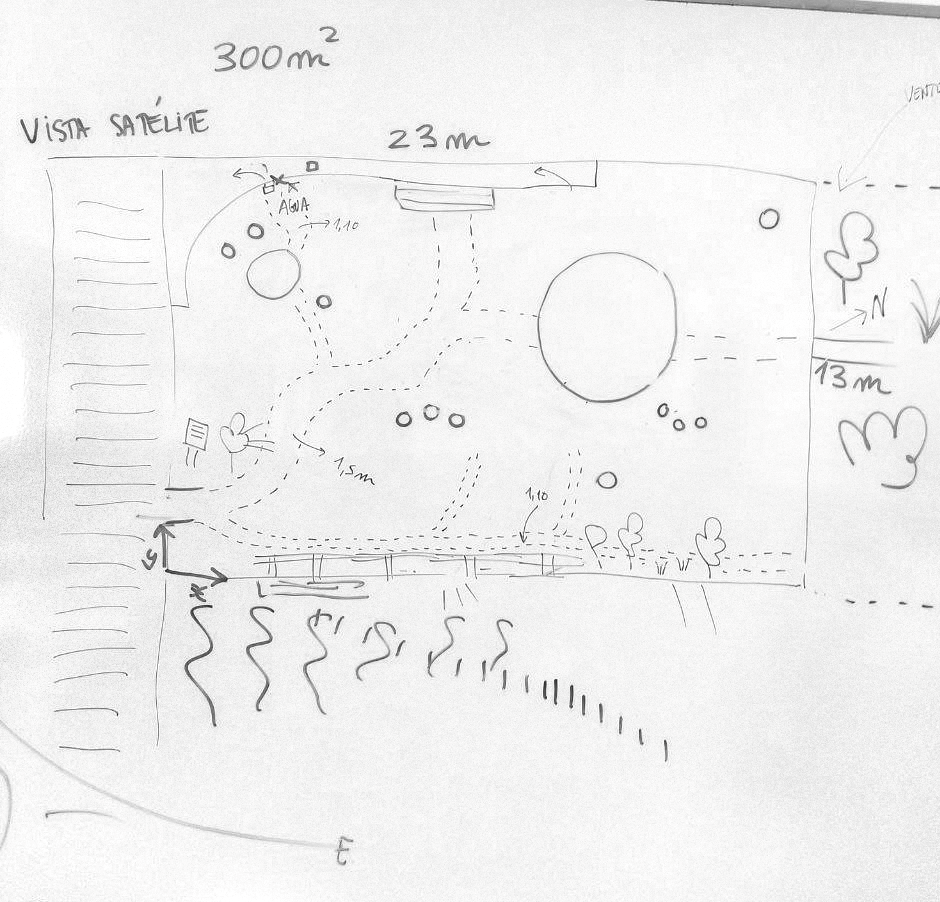
The mini-forest and its creation process are part of the TERRARE - Action research for social and ecological regenerationThe project is being developed by researcher Oriana Rainho Brás at SOCIUS/CSG, with the support of ISEG Sustainability, as well as the collaboration of biologist António Alexandre from 2Adapt-Serviços de Adaptação Climática and FCUL, and with the partnership of ValorSul-Valorização e Tratamento de Resíduos Sólidos das Regiões de Lisboa e do Oeste, SA, which is supplying the organic compost to enrich the soil.
The TERRARE project aims to reflect on the eco-social processes involved in creating an urban mini-forest with the participation of the university community and the dynamics of research into soil regeneration through reforestation and community involvement. ISEG's mini-forest follows the Miyawaki method, characterized by the dense planting of native species belonging to all the strata of a forest, which allows them to grow rapidly in spaces as small as 300m2. The mini-forest model (tiny forest)brings multiple benefits: diversification of local fauna and flora, carbon absorption, water fixation, thermal regulation and soil regeneration, plus the well-being of humans and more-than-humans and the enormous potential for learning in connection with nature.
We look forward to seeing you!